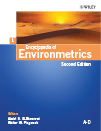Adaptive Management
Abstract
Adaptive management (AM) is a form of decision analysis developed to deal with recurrent problems that are characterized by uncertainty. This article introduces the concept of AM and provides a brief history of its development in natural resource management, focusing on the relevance of recurrence and uncertainty to decision-making. The central components of AM include objectives, potential actions, models of system response to actions, monitoring, and a solution algorithm. These components are described, and their respective roles in the iterative AM process specified. “Active” and “passive” forms of AM are defined, with the distinction depending on the degree to which each decision anticipates learning and the resultant improvement in future management. AM has substantial potential for improving natural resource management, but its increased use will depend on our ability to produce many more managers and scientists capable of developing and implementing AM programs.



